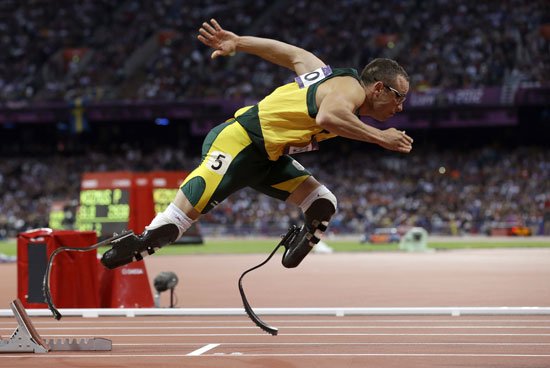
The latest achievement of South African sprinter Oscar Pistorius is the cold-blooded murder of his girlfriend Reeva Steenkamp. He was charged with premeditated murder, and prosecution witnesses provided substantial evidence to that effect during the trial. But his good name, skilled lawyers, and who knows what else managed to have the charge reduced to culpable homicide. Perhaps some good lawyers should openly argue that permanently enhanced protagonists of the athletic spectacle cannot have many intentions, but only act negligently.
However, Oscar Pistorius will remain in history for other reasons. He is the first cyborg, with high-tech artificial legs (carbon fiber reinforced blades), to be allowed to compete against able-bodied athletes in official competitions: his blade prostheses do not give him a special advantage over other sprinters, as decided in 2008 by a specialized Swiss court. Debatable… but now settled.
Although the Pistorius case gives courage to similar amputees, the dispute took place against the backdrop of the capabilities of new technologies regarding artificial limbs. Under certain conditions, these artificial limbs could become attractive even to able-bodied individuals. A fashion of replacing/improving body organs is not as distant as it seems.
